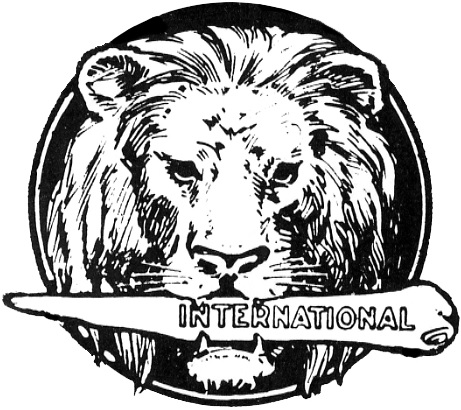History

1917: The Beginning – Chicago business leader Melvin Jones asked a simple and world-changing question – what if people put their talents to work improving their communities? Almost 100 years later, Lions Clubs International is the world’s largest service club organization, with more than 1.3 million members in more than 45,000 clubs and countless stories of Lions acting on the same simple idea: let’s improve our communities.
1920: Going International – Just three years after our founding, Lions became international when we established the first club in Canada. Mexico followed in 1927. In the 1950s and 1960s international growth accelerated, with new clubs in Europe, Asia and Africa.
1925: Fighting Blindness – Helen Keller addressed the Lions Clubs International Convention in Cedar Point, Ohio, USA, and challenged Lions to become “knights of the blind in the crusade to eradicate darkness.” Since then, we have worked tirelessly to aid the blind and visually impaired.
1945: The ideal of an international organization is exemplified by our enduring relationship with the United Nations. We were one of the first nongovernmental organizations invited to assist in the drafting of the United Nations Charter and have supported the work of the UN ever since.
1957: Organizing Youth Programs – In the late 1950s, we created the Leo Program to provide the youth of the world with an opportunity for personal development through volunteering. There are approximately 144,000 Leos and 5,700 Leo clubs in more than 140 countries worldwide.
1968: Establishing Our Foundation – Lions Clubs International Foundation assists Lions with global and large-scale local humanitarian projects. Through our Foundation, Lions meet the needs of their local and global communities.
---------------------------------------------------------------------------------------------------------------------
The River Hills Lions Club was formed on March 24, 1975 and chartered on March 28, 1975. It was renamed “River Hills / Lake Wylie Lions Club. Incorporated” in October, 2014.
Officers in 1975
- President – Jack Rutter
- First VP – Gene Connell
- Second VP – Larry Schroeder
- Third VP – George Beecher
- Secretary-Treasurer – Harvey Watson
- Lion Tamer – Dick Michaux
- Tail Twister – Jack Litton
- Directors – Dick Berlow, Lee Bullington, Gary Hurt, Bruce Pickard
The Club started meeting on the second Saturday at 8 a.m. for continental breakfast at the Wreck Center and on the fourth Wednesday at 7 p.m. for dinner at the River Club.
Charter Members Included
- Richard L. Austin, Richard E. Fuller, Roger L. Perry
- Sam T. Ball, William H. Geho, Bruce L. Pickard
- George N. Beecher, Harold J. Hofsess, Stanley R. Roberts
- Richard Berlow, Gary J. Hurt, John P. Rutter, Jr.
- Harold Breitman, Robert H. Irwin, Michael Schlueter
- E. Lee Bullington, Jack L. Litton, Lawrence Schroeder
- Edgar M. Burkett, J. R. Meyer-Cuno, Harry S. Summer
- Eugene D. Connell, Richard L. Michaux, Harvey L. Watson
- Robert Enders, Robert G. Munroe, Ed K. Williford
Gene Connell was chairman for Charter Night on May 9, 1975. The dinner meeting was held at the Regatta Room. District Governor Frank Lineberger presented the Club with it’s Charter and challenged the group to make sight conservation a major undertaking of the Club. The Plaque can be seen in the trophy case opposite the Cove Room at the River Hills Country Club. Harvey Watson accepted a gift of a podium, a gavel and a gong from the Clover Lions Club who was the sponsor of the River Hills group. The speaker for the group was Lion Obe Rosvold, President of the SC Eye Bank in Columbia.
Our speaker at the May 28, 1975 meeting was Larry Harris of the Speaker’s Bureau for the SC Lions Sight Conservation Association. Jack Rutter visited the SCLSCA and the SC Eye Bank in Columbia, SC.
On July 4, 1975 in the area of the General Store complex, the River Hills Lions gave away rolls of candy in the hopes of receiving donations. Most of the donations will go to the SCLSCA and the balance to local community projects such as the Clover Rescue Squad. The first organizer of these projects was Chairman Dick Berlow who was aided by Harold Breitman, Bob Enders, Jack Litton and Dick Michaux.
See State of South Carolina, A House Resolution H*4613 Session 121 (2015-2016)